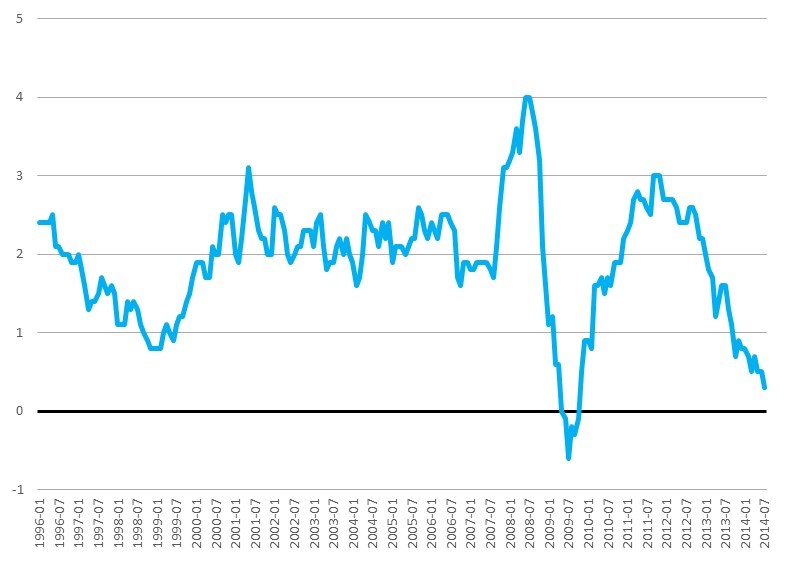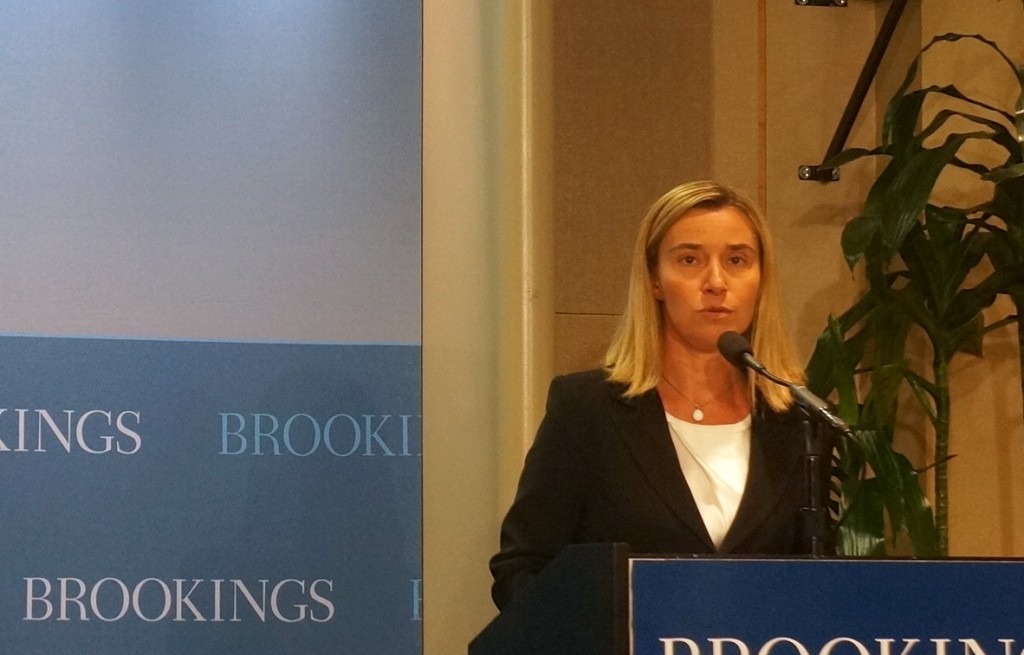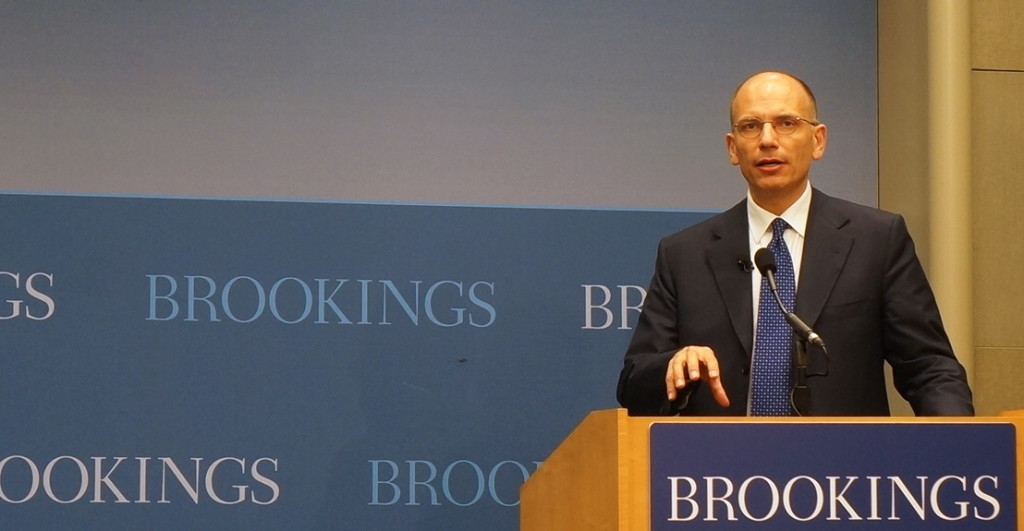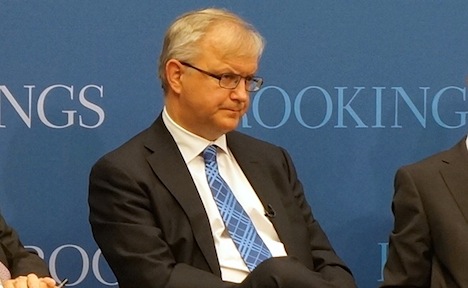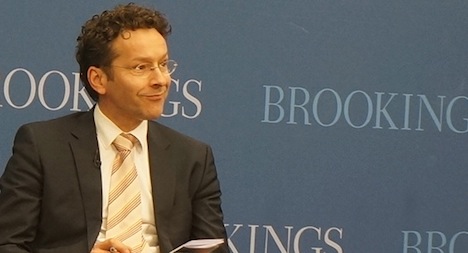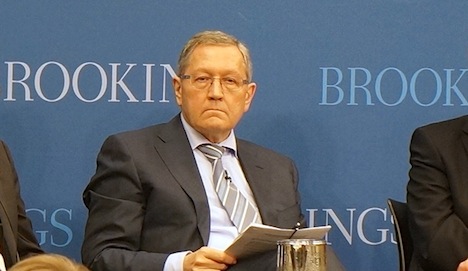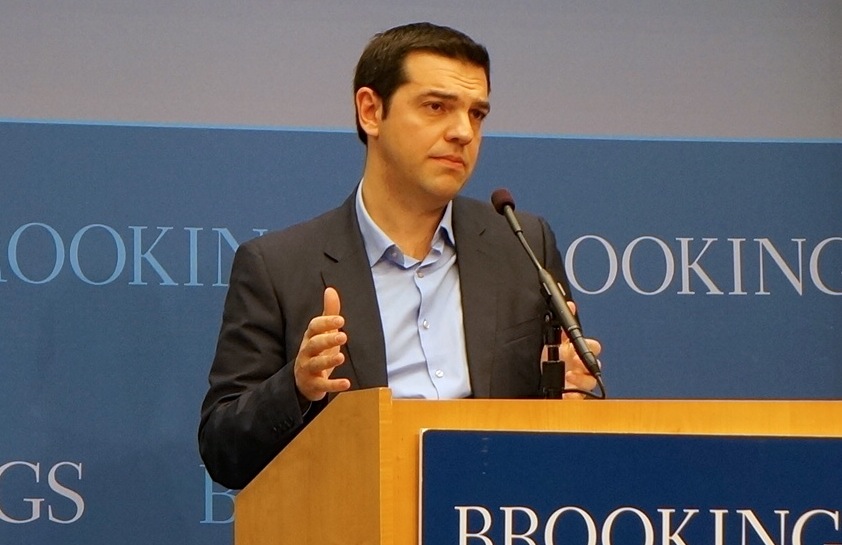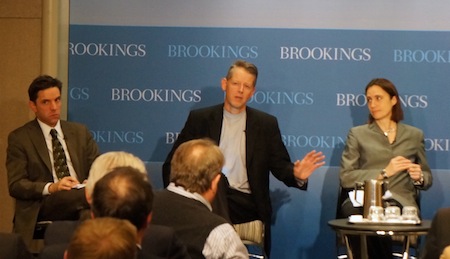
I had the opportunity to catch Princeton University’s Andrew Moravcsik (pictured above, middle) at the Brookings Institution yesterday for a brief panel discussion on relations between the United States and the European Union following the reelection of U.S. president Barack Obama. Moravcsik engaged with Atlantic columnist Clive Crook and other panelists on not only the direction of US-EU relations in Obama’s second term, but also whether US-EU relations are even incredibly relevant at all for an administration likely to have higher priorities. 

It takes a special kind of brass for an American to become one of the fundamental scholars of European integration, but Moravcsik is the father of the liberal intergovernmentalism theory of European integration, which purports that European institutions are essentially the creations of nation-states, and that supranational entities such as the European Union only have as much power as those states unanimously agree to provide them. It stands in contrast to the competing neofunctionalism theory that purports that institutions like the European Union gather more power through the spillover effects of integration, allowing them to grow and gain additional power as integration deepens, notwithstanding the wishes of nation-states. It’s a fascinating debate, and it’s especially fascinating to consider the consequences of both theories for the ongoing European response to the eurozone’s sovereign debt crisis.
Needless to say, few political scientists — European, American or otherwise — have had as much influence on European integration theory as Moravcsik. As such, he’s long been one of my favorite scholars since I first studied European integration theory at the European University Institute, so it was somewhat of a pleasure to see him discuss US-EU relations in person — and not less than a 10-minute walk from home at that.
The discussion featured much of the standard debate between intergovernmentalism and functionalism, with Crook arguing in particular that the United Kingdom under prime minister David Cameron was perhaps irretrievably isolating itself from Europe and that it risked geopolitical irrelevance if it did so. He worried that the European Union, more generally, has failed to adequately provide ‘variable geometry’ for European countries — a so-called ‘multi-speed Europe.’
Moravcsik, however, largely shrugged off those concerns and noted that a multi-speed Europe emerged two decades ago, with some countries participating more fully and others, like the United Kingdom, choosing to participate in some core functions but not others:
There’s a lot of people in Brussels who say a lot of things, but what happens is what member states say.
He pointed to the limited nature of participation in the eurozone — many members, including the United Kingdom, have not acceded to the single currency. He also pointed to the voluntary nature of opting into any unified European foreign policy (e.g., the ‘coalition of the willing’ that included the United Kingdom, Italy and Poland, but few others, in support of the U.S. invasion of Iraq in 2003), the flexibility of European competition policy, and the opt-out nature of the Schengen Agreement that establishes the free crossing of borders throughout Europe, to which even some non-EU countries are party. He added that Turkey and, increasingly, Morocco are both, to some degree, integrated into the European Union, if not in quite a de jure capacity.
I found Moravcsik’s thoughts on US-EU relations more intriguing, however — especially his thoughts on the Obama administration’s much-trumpeted ‘pivot to Asia.’
Moravcsik argued that US-EU relations are far more sanguine than, perhaps, has been reported, and noted the role that German chancellor Angela Merkel and European Central Bank president Mario Draghi played in preventing — or at least delaying — the kind of eurozone crisis that could have endangered Obama’s election. He added that U.S. and European interests are largely aligned and that when the Obama administration needs to call someone in the world with the will and means to support its goals, it’s still likely to call on Europe. He noted that the United States and Europe agree more consistently today than they did during the Cold War on issues as wide-ranging as nuclear proliferation, Israeli-Palestinian peace, consequences of the ‘Arab Spring,’ and environmental and climate change policy.
As such, he dismissed the idea of a ‘pivot to Asia’ as nothing so much as overheated rhetoric, comparing it to the talk of the United States as a unilateral ‘hyperpower’ in 2003. In both cases, he argued that Europeans have (wrongly) taken American rhetoric at far more than face value. To the contrary, Moravcsik claimed that the ‘pivot to Asia’ talk was ‘drummed up’ as a strategic justification for the United States pulling out of Iraq and Afghanistan.
That was perhaps a bit starker than I’d imagined. After all, Obama is headed, of all places, to southeast Asia for his first post-reeelction trip — to Myanmar/Burma, the first trip by a sitting U.S. president to that country in U.S. history.
Broadly speaking, Moravcsik argued that large strategic shifts, like any ‘pivot’ to Asia, are accomplished only gradually over long periods of time. That strikes me as largely correct, but it nonetheless will be interesting to see what happens between now and 2017 on U.S. Asia/Pacific policy.
Notably, we have a handful of measuring sticks to guide us: Continue reading Andrew Moravcsik, Brookings panel explore US-EU relations in Obama’s second term →
![]()
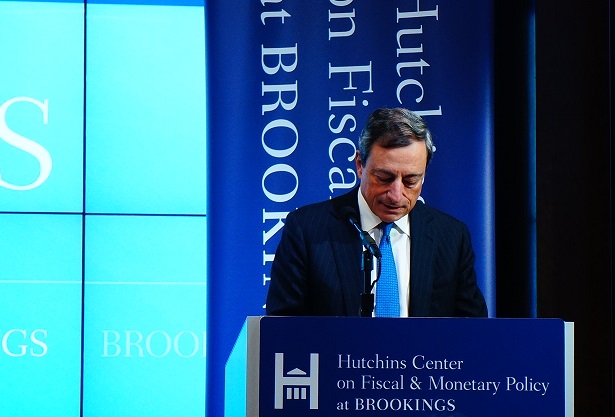 Draghi stressed that he understands the biggest risk to European Union’s economic recovery is deflation. He noted that the ECB is transitioning from a more passive approach to a much more active ‘QE-style’ approach to the bank’s balance sheet — in part by moving last month to purchase private-sector bonds and asset-backed securities. Even if Draghi’s efforts still fall short of the kind of quantitative easing (e.g., outright asset purchases) that the Federal Reserve introduced to US monetary policy five years ago, Draghi committed himself to lifting the eurozone’s inflation from ‘its excessively low level’:
Draghi stressed that he understands the biggest risk to European Union’s economic recovery is deflation. He noted that the ECB is transitioning from a more passive approach to a much more active ‘QE-style’ approach to the bank’s balance sheet — in part by moving last month to purchase private-sector bonds and asset-backed securities. Even if Draghi’s efforts still fall short of the kind of quantitative easing (e.g., outright asset purchases) that the Federal Reserve introduced to US monetary policy five years ago, Draghi committed himself to lifting the eurozone’s inflation from ‘its excessively low level’:
